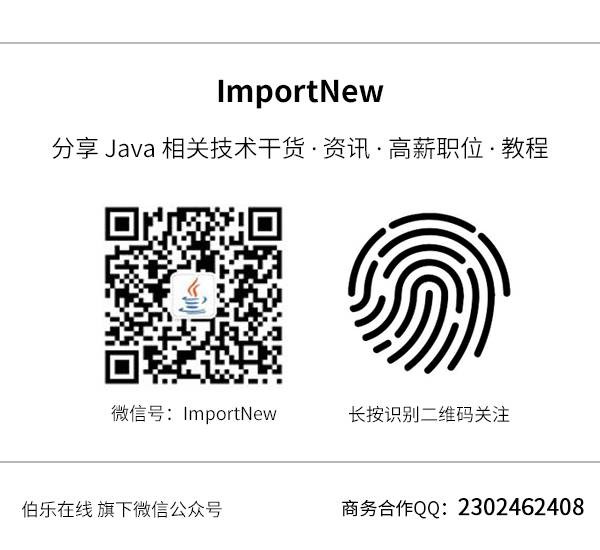(點選上方公眾號,可快速關註)
來源:hengyunabc ,
blog.csdn.net/hengyunabc/article/details/78762121
寫在前面
這個demo來說明怎麼排查一個常見的spring expected single matching bean but found 2的異常。
https://github.com/hengyunabc/spring-boot-inside/tree/master/demo-expected-single
除錯排查 expected single matching bean but found 2 的錯誤
把工程匯入IDE裡,直接啟動應用,丟擲來的異常資訊是:
Caused by: org.springframework.beans.factory.NoUniqueBeanDefinitionException: No qualifying bean of type ‘javax.sql.DataSource’ available: expected single matching bean but found 2: h2DataSource1,h2DataSource2
at org.springframework.beans.factory.support.DefaultListableBeanFactory.resolveNamedBean(DefaultListableBeanFactory.java:1041) ~[spring-beans-4.3.9.RELEASE.jar:4.3.9.RELEASE]
at org.springframework.beans.factory.support.DefaultListableBeanFactory.getBean(DefaultListableBeanFactory.java:345) ~[spring-beans-4.3.9.RELEASE.jar:4.3.9.RELEASE]
at org.springframework.beans.factory.support.DefaultListableBeanFactory.getBean(DefaultListableBeanFactory.java:340) ~[spring-beans-4.3.9.RELEASE.jar:4.3.9.RELEASE]
at org.springframework.context.support.AbstractApplicationContext.getBean(AbstractApplicationContext.java:1090) ~[spring-context-4.3.9.RELEASE.jar:4.3.9.RELEASE]
at org.springframework.boot.autoconfigure.jdbc.DataSourceInitializer.init(DataSourceInitializer.java:71) ~[spring-boot-autoconfigure-1.4.7.RELEASE.jar:1.4.7.RELEASE]
at sun.reflect.NativeMethodAccessorImpl.invoke0(Native Method) ~[na:1.8.0_112]
at sun.reflect.NativeMethodAccessorImpl.invoke(NativeMethodAccessorImpl.java:62) ~[na:1.8.0_112]
at sun.reflect.DelegatingMethodAccessorImpl.invoke(DelegatingMethodAccessorImpl.java:43) ~[na:1.8.0_112]
at java.lang.reflect.Method.invoke(Method.java:498) ~[na:1.8.0_112]
at org.springframework.beans.factory.annotation.InitDestroyAnnotationBeanPostProcessor$LifecycleElement.invoke(InitDestroyAnnotationBeanPostProcessor.java:366) ~[spring-beans-4.3.9.RELEASE.jar:4.3.9.RELEASE]
at org.springframework.beans.factory.annotation.InitDestroyAnnotationBeanPostProcessor$LifecycleMetadata.invokeInitMethods(InitDestroyAnnotationBeanPostProcessor.java:311) ~[spring-beans-4.3.9.RELEASE.jar:4.3.9.RELEASE]
at org.springframework.beans.factory.annotation.InitDestroyAnnotationBeanPostProcessor.postProcessBeforeInitialization(InitDestroyAnnotationBeanPostProcessor.java:134) ~[spring-beans-4.3.9.RELEASE.jar:4.3.9.RELEASE]
… 30 common frames omitted
很多人碰到這種錯誤時,就亂配置一通,找不到下手的辦法。其實耐心排查下,是很簡單的。
丟擲異常的原因
異常資訊寫得很清楚了,在spring context裡需要註入/獲取到一個DataSource bean,但是現在spring context裡出現了兩個,它們的名字是:h2DataSource1,h2DataSource2
那麼有兩個問題:
-
應用是在哪裡要註入/獲取到一個DataSource bean?
-
h2DataSource1,h2DataSource2 是在哪裡定義的?
使用 Java Exception Breakpoint
在IDE裡,新建一個斷點,型別是Java Exception Breakpoint(如果不清楚怎麼新增,可以搜尋對應IDE的使用檔案),異常類是上面丟擲來的NoUniqueBeanDefinitionException。
當斷點停住時,檢視棧,可以很清楚地找到是在DataSourceInitializer.init() line: 71這裡要獲取DataSource:
Thread [main] (Suspended (exception NoUniqueBeanDefinitionException))
owns: ConcurrentHashMap
(id=49) owns: Object (id=50)
DefaultListableBeanFactory.resolveNamedBean(Class
, Object…) line: 1041 DefaultListableBeanFactory.getBean(Class
, Object…) line: 345 DefaultListableBeanFactory.getBean(Class
) line: 340 AnnotationConfigEmbeddedWebApplicationContext(AbstractApplicationContext).getBean(Class
) line: 1090 DataSourceInitializer.init() line: 71
NativeMethodAccessorImpl.invoke0(Method, Object, Object[]) line: not available [native method]
NativeMethodAccessorImpl.invoke(Object, Object[]) line: 62
DelegatingMethodAccessorImpl.invoke(Object, Object[]) line: 43
Method.invoke(Object, Object…) line: 498
InitDestroyAnnotationBeanPostProcessor$LifecycleElement.invoke(Object) line: 366
InitDestroyAnnotationBeanPostProcessor$LifecycleMetadata.invokeInitMethods(Object, String) line: 311
CommonAnnotationBeanPostProcessor(InitDestroyAnnotationBeanPostProcessor).postProcessBeforeInitialization(Object, String) line: 134
DefaultListableBeanFactory(AbstractAutowireCapableBeanFactory).applyBeanPostProcessorsBeforeInitialization(Object, String) line: 409
DefaultListableBeanFactory(AbstractAutowireCapableBeanFactory).initializeBean(String, Object, RootBeanDefinition) line: 1620
DefaultListableBeanFactory(AbstractAutowireCapableBeanFactory).doCreateBean(String, RootBeanDefinition, Object[]) line: 555
DefaultListableBeanFactory(AbstractAutowireCapableBeanFactory).createBean(String, RootBeanDefinition, Object[]) line: 483
AbstractBeanFactory$1.getObject() line: 306
DefaultListableBeanFactory(DefaultSingletonBeanRegistry).getSingleton(String, ObjectFactory >) line: 230
DefaultListableBeanFactory(AbstractBeanFactory).doGetBean(String, Class
, Object[], boolean) line: 302 DefaultListableBeanFactory(AbstractBeanFactory).getBean(String, Class
, Object…) line: 220 DefaultListableBeanFactory.resolveNamedBean(Class
, Object…) line: 1018 DefaultListableBeanFactory.getBean(Class
, Object…) line: 345 DefaultListableBeanFactory.getBean(Class
) line: 340 DataSourceInitializerPostProcessor.postProcessAfterInitialization(Object, String) line: 62
DefaultListableBeanFactory(AbstractAutowireCapableBeanFactory).applyBeanPostProcessorsAfterInitialization(Object, String) line: 423
DefaultListableBeanFactory(AbstractAutowireCapableBeanFactory).initializeBean(String, Object, RootBeanDefinition) line: 1633
DefaultListableBeanFactory(AbstractAutowireCapableBeanFactory).doCreateBean(String, RootBeanDefinition, Object[]) line: 555
DefaultListableBeanFactory(AbstractAutowireCapableBeanFactory).createBean(String, RootBeanDefinition, Object[]) line: 483
AbstractBeanFactory$1.getObject() line: 306
DefaultListableBeanFactory(DefaultSingletonBeanRegistry).getSingleton(String, ObjectFactory >) line: 230
DefaultListableBeanFactory(AbstractBeanFactory).doGetBean(String, Class
, Object[], boolean) line: 302 DefaultListableBeanFactory(AbstractBeanFactory).getBean(String) line: 197
DefaultListableBeanFactory.preInstantiateSingletons() line: 761
AnnotationConfigEmbeddedWebApplicationContext(AbstractApplicationContext).finishBeanFactoryInitialization(ConfigurableListableBeanFactory) line: 867
AnnotationConfigEmbeddedWebApplicationContext(AbstractApplicationContext).refresh() line: 543
AnnotationConfigEmbeddedWebApplicationContext(EmbeddedWebApplicationContext).refresh() line: 122
SpringApplication.refresh(ApplicationContext) line: 762
SpringApplication.refreshContext(ConfigurableApplicationContext) line: 372
SpringApplication.run(String…) line: 316
SpringApplication.run(Object[], String[]) line: 1187
SpringApplication.run(Object, String…) line: 1176
DemoExpectedSingleApplication.main(String[]) line: 17
定位哪裡要註入/使用DataSource
要獲取DataSource具體的程式碼是:
//org.springframework.boot.autoconfigure.jdbc.DataSourceInitializer.init()
@PostConstruct
public void init() {
if (!this.properties.isInitialize()) {
logger.debug(“Initialization disabled (not running DDL scripts)”);
return;
}
if (this.applicationContext.getBeanNamesForType(DataSource.class, false,
false).length > 0) {
this.dataSource = this.applicationContext.getBean(DataSource.class);
}
if (this.dataSource == null) {
logger.debug(“No DataSource found so not initializing”);
return;
}
runSchemaScripts();
}
this.applicationContext.getBean(DataSource.class); 要求spring context裡只有一個DataSource的bean,但是應用裡有兩個,所以丟擲了NoUniqueBeanDefinitionException。
從BeanDefinition獲取bean具體定義的程式碼
我們再來看 h2DataSource1,h2DataSource2 是在哪裡定義的?
上面行程斷在了DefaultListableBeanFactory.resolveNamedBean(Class
那麼我們在這裡執行一下(如果不清楚,先搜尋下IDE怎麼在斷點情況下執行程式碼):
this.getBeanDefinition(“h2DataSource1”)
傳回的資訊是:
Root bean: class [null]; scope=; abstract=false; lazyInit=false; autowireMode=3; dependencyCheck=0; autowireCandidate=true; primary=false; factoryBeanName=demoExpectedSingleApplication; factoryMethodName=h2DataSource1; initMethodName=null; destroyMethodName=(inferred);
defined in com.example.demo.expected.single.DemoExpectedSingleApplication
可以很清楚地定位到h2DataSource1這個bean是在 com.example.demo.expected.single.DemoExpectedSingleApplication裡定義的。
所以上面兩個問題的答案是:
-
是spring boot程式碼裡的DataSourceInitializer.init() line: 71這裡要獲取DataSource,並且只允許有一個DataSource實體
-
h2DataSource1,h2DataSource2 是在com.example.demo.expected.single.DemoExpectedSingleApplication裡定義的
解決問題
上面排查到的原因是:應用定義了兩個DataSource實體,但是spring boot卻要求只有一個。那麼有兩種辦法來解決:
-
使用@Primary來指定一個優先使用的DataSource,這樣子spring boot裡自動初始的程式碼會獲取到@Primary的bean
-
把spring boot自動初始化DataSource相關的程式碼禁止掉,應用自己來控制所有的DataSource相關的bean
禁止的辦法有兩種:
在main函式上配置exclude
@SpringBootApplication(exclude = { DataSourceAutoConfiguration.class, DataSourceTransactionManagerAutoConfiguration.class })
在application.properties裡配置:
spring.autoconfigure.exclude=org.springframework.boot.autoconfigure.jdbc.DataSourceAutoConfiguration,org.springframework.boot.autoconfigure.jdbc.DataSourceTransactionManagerAutoConfiguration
總結
-
排查spring初始化問題時,靈活使用Java Exception Breakpoint
-
從異常棧上,可以很容易找到哪裡要註入/使用bean
-
從BeanDefinition可以找到bean是在哪裡定義的(哪個Configuration類/xml)
看完本文有收穫?請轉發分享給更多人
關註「ImportNew」,提升Java技能

 知識星球
知識星球